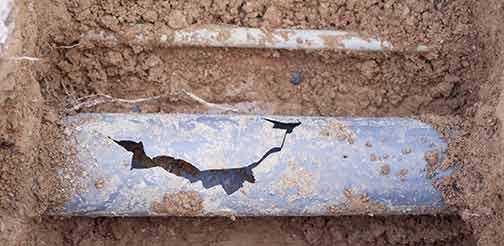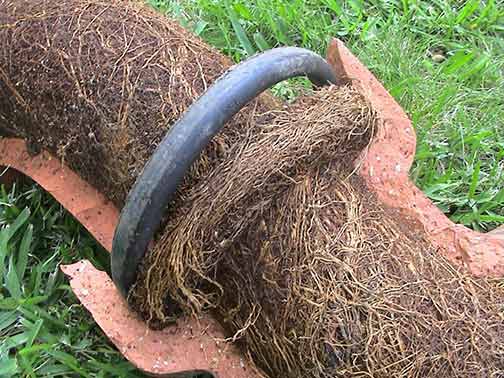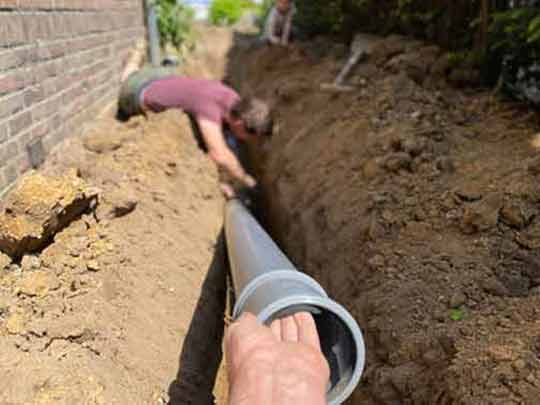
A sewer line leak in your yard can be a cause for concern and an indication of underlying problems within your plumbing system. It is important to address this issue promptly to prevent further damage and potential health risks. Below we will explore what a sewer line leak in your yard may signify and the necessary steps to rectify the situation.
Signs and Symptoms
Identifying a sewer line leak in your yard can save you from costly repairs and health hazards. Here are some common signs and symptoms:
- Unpleasant Odors: Foul smells emanating from your yard or near drains can indicate a sewer line leak. These odors are caused by the release of waste gases and sewage.
- Visible Water Accumulation: Patches of standing water or soggy soil in your yard, particularly around the sewer line, suggest a potential leak.
- Slow Drainage: If multiple drains in your home experience slow drainage, it may indicate a sewer line issue.
- Presence of Mold or Mildew: Moisture caused by a sewer line leak can lead to the growth of mold or mildew in and around your home.
- Sewage Backups: A clogged or damaged sewer line can cause sewage backups in your home’s plumbing fixtures, creating a clear indication of a problem.
Possible Causes of a Sewer Line Leak
Several factors can contribute to a sewer line leak in your yard. Understanding the potential causes can help you address the issue promptly and efficiently:
- Age and Deterioration: Over time, sewer lines can degrade, crack, or collapse due to wear and tear. This can be a result of outdated materials or natural deterioration.
- Tree Root Intrusion: Tree roots are attracted to the moisture and nutrients present in sewer pipes. As they grow, they can penetrate the pipe walls, causing leaks or blockages.
- Corrosion: Certain types of sewer pipes, such as those made of cast iron or galvanized steel, are prone to corrosion over time, leading to leaks.
- Physical Damage: Construction work or improper landscaping practices can accidentally damage sewer lines, causing leaks.
- Excessive Pressure: Abnormally high water pressure in the sewer line can cause the pipes to crack or rupture, resulting in leaks.
Health and Environmental Concerns
A sewer line leak poses various health and environmental risks:
- Sanitary Concerns: Exposure to raw sewage can lead to a variety of health issues, including gastrointestinal problems, respiratory ailments, and skin infections. Prompt remediation is crucial to avoid these risks.
- Contamination of Soil and Water: Sewage leakage can contaminate the surrounding soil and potentially seep into nearby sources of groundwater, affecting the environment and potentially causing waterborne diseases.
- Potential Structural Damage: An untreated sewer line leak can weaken your home’s foundation and structural integrity over time, leading to costly repairs.
Steps to Address a Sewer Line Leak
When confronted with a sewer line leak in your yard, it is important to follow these steps:
- Identify the Problem: Conduct a visual inspection of your yard to locate any signs of a sewer line leak, such as soggy areas or foul odors. Speak with a professional plumber to conduct a thorough assessment.
- Turn Off Water Usage: If you suspect a sewer line leak, minimize water usage throughout your home to prevent further backups or damage.
- Contact a Professional Plumber: Seek the assistance of a licensed plumber experienced in sewer line repair services to accurately diagnose the issue and propose appropriate solutions.
- Consider Sewer Line Repair or Replacement: Depending on the severity of the leak and the condition of your sewer line, repair or replacement may be necessary. Options include pipe relining, spot repair, or complete replacement.
- Maintain Preventive Measures: Regularly maintain your plumbing system to prevent future sewer line leaks. This includes monitoring tree growth near pipes, practicing proper waste disposal, and scheduling routine inspections.
Conclusion
A sewer line leak in your yard should not be taken lightly, as it can lead to significant damage and health risks if left untreated. Identifying the signs, understanding the causes, and taking prompt action are crucial to safeguarding your home and preventing further complications.
Contact a plumber near you to address the issue effectively and implement preventive measures to minimize the likelihood of future leaks.



